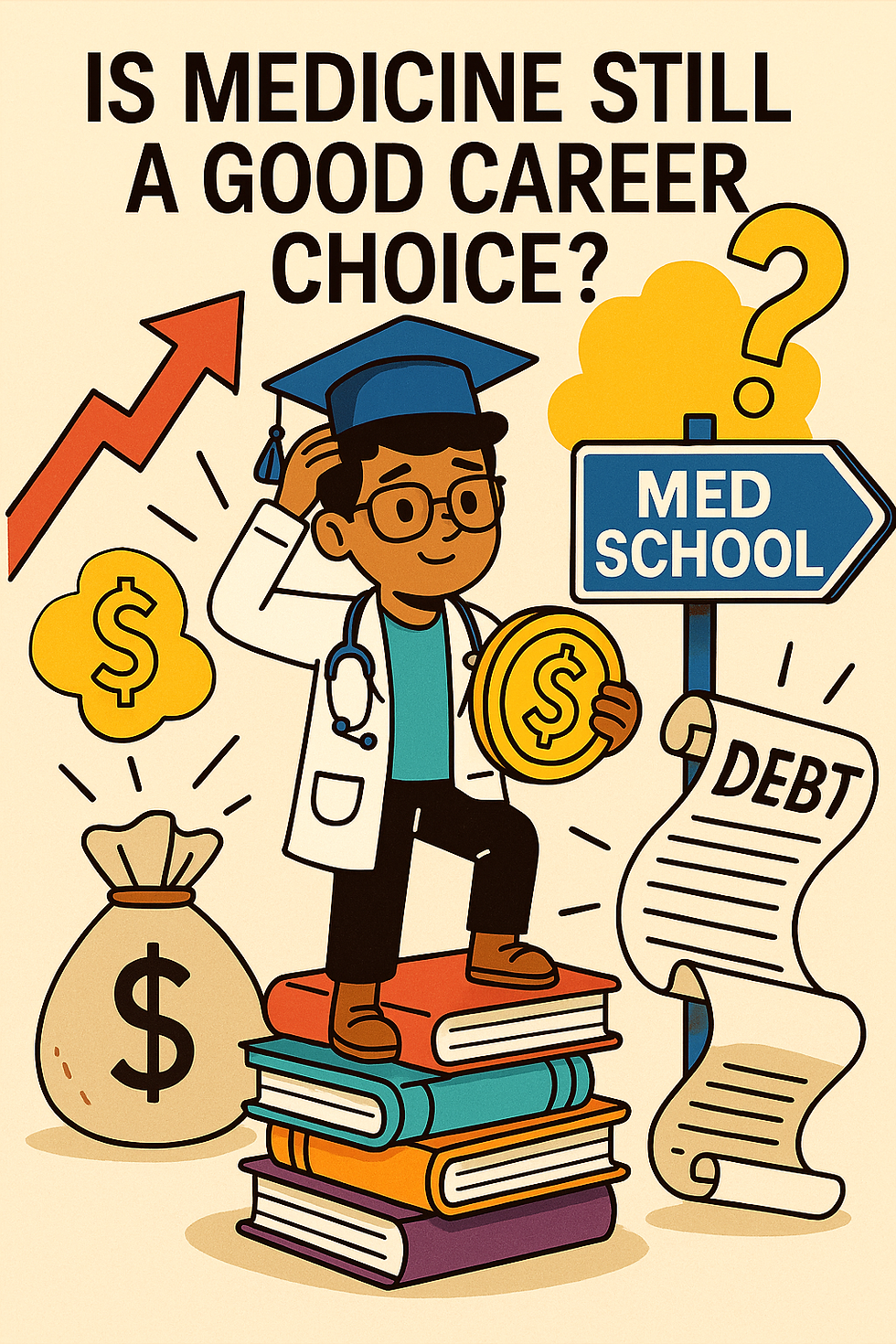Will There Be a Next Generation of Doctors?
- Joshua Russell
- Sep 24, 2025
- 2 min read
Updated: Sep 28, 2025

I've been approached by many a wide-eyed and eager pre-med student over the years who have asked me about the experience of being a doctor and if I thought it was a good career choice for them. Increasingly, over recent years, I've found myself less and less likely to recommend they follow in my footsteps.
I didn't realize it at the time, but borrowing $300,000 and spending 12 years in school and training rather than earning and beginning to save for a home and retirement was a big financial risk, even in 2005. But how much more so is this the case now?
Physician pay is not keeping up with increases in the COL and why would we expect it to? APCs, a much less expensive human resource, are being given increasing autonomy and AI tools are being used to increase efficiency. And while I've not heard of physicians being replaced outright by PAs, NPs, or AI, they certainly create an appearance that we doctors are an overpaid resource among those responsible for organizational budgets.
I wasn't sure if I was being overly pessimistic about the current and future state of medicine so I put the question to a Facebook group of over 4,000 EM docs. While the sample may be subject to some bias, it's clear that I'm not the only doctor feeling this way. In fact, 57% of the 224 group members who voted shared the same sentiments.
Now, as we face the impending limits on grad school student loans included in the 'Big Beautiful Bill' students will be capped at $50,000/year. The average cost of a 4 year medical education ranges from $286,000-$390,000 depending on residence and public vs. private school enrollment in 2025 according to the AAMC. This means medical school will be out of reach for all but those fortunate to have outside sources of funding–a luxury afforded to fortunate few.
Even prior to the passing of the BBB, the AAMC estimated that we'd be facing a physician shortage of almost 90,000 doctors in the next 10 years. With so many practicing physicians looking for careers outside of medicine and counseling would-be med school applicants to do the same, and compounded by these changes in available funding, my question is NOT what will the next generation of doctors be like, but rather will there be a next generation of doctors at all?
And among those who do make it through the long, arduous, and expensive process of medical education and training, how long will their careers last with so few around to carry an increasingly heavy load?



Comments